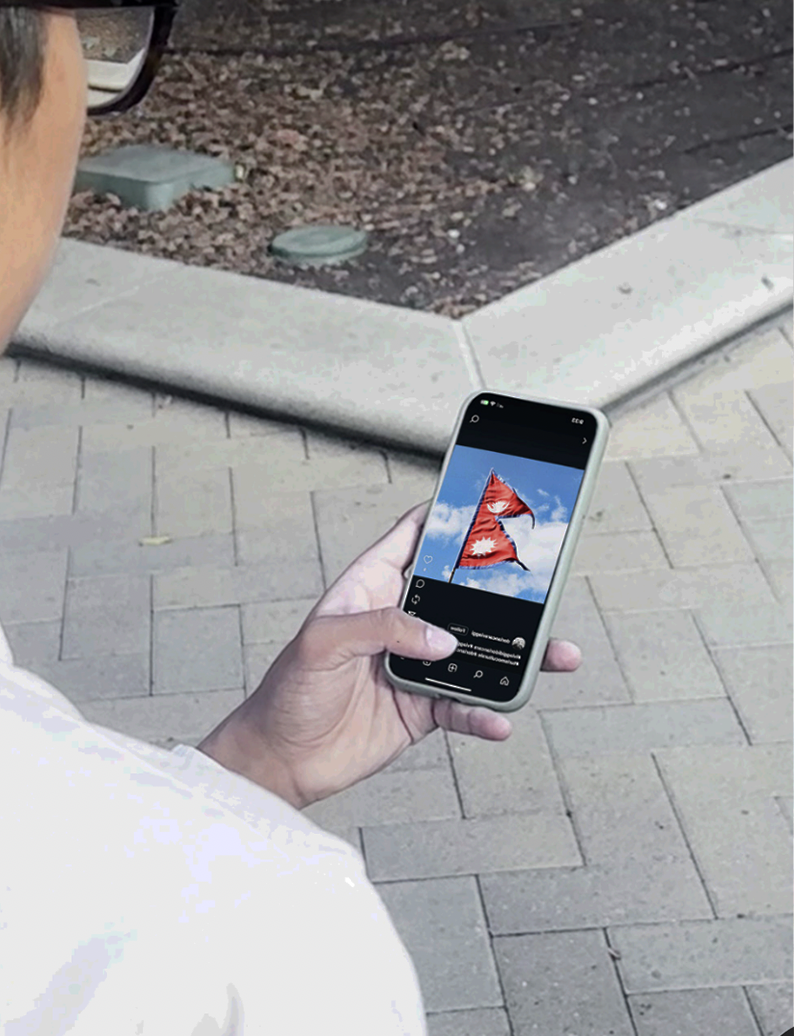
SOURYA CHILUKURI '27//THE LOYALIST
GEN Z STUDENT USES Instagram to follow Nepal news
Could America’s Generation Z overthrow their government? Probably not. Yet in Nepal, young people proved it was possible.
Nepal was an unstable nation whose government was brought down through large-scale protests by Gen Z. On Sept. 10, 2025, Nepal’s government fell after mass Gen Z protests. What began with viral hashtags like #NepoBaby and #NepoKids that mocked wealthy elites flaunting their privilege quickly grew into outrage over corruption, inequality and a lack of opportunity.
When the government banned 26 major social media platforms, including YouTube and Instagram, young people flooded the streets. Tens of thousands marched on the parliament, sparking clashes that left 34 dead and more than 1,300 injured. As arson attacks spread, including the burning of the Singha Durbar—home to parliament and government ministries—the state imposed a curfew in Kathmandu.
Within days, Home Minister Ramesh Lekhak and Prime Minister KP Sharma Oli resigned. In a twist, protesters reportedly turned to Discord, one of the banned platforms, to choose former Supreme Court justice Sushila Karki as interim prime minister.
Gen Z is made up of anyone born from 1997 and 2012. Older generations view Gen Z as divided, lacking a work ethic, fragile and overly reliant on technology. However, in America, Gen Z is much too divided to overthrow the government.
Daniel Kracer, an AP Government teacher, speaking in the context of Gen Z in the U.S., said, “Gen Z is too disorganized because of their competing interests, I am more worried about Gen Z protesting becoming a target of the government which could result in violent crackdowns. I think a uniting theme for Gen Z could be jobs, health care, wages etc., but I don’t believe Gen Z understands enough about the nuance of politics to achieve their goals.”
Michael Romero ‘28 stated, “I believe my generation is divided due to political interests.”
If the U.S. were to implement similar policies to Nepal, it would likely cause Gen Z to lash out, but it would not result in the overthrowing of the government. This is proven when the U.S. attempted to ban TikTok. Gen Z was unhappy but did not cross party lines and organize protests.
Currently, polarization between political parties is severe, with both embracing “us versus them” mentalities that make it difficult for Gen Z to cross party lines and organize collectively. This is even seen in the highest level of politics, where Congress members often vote with how the party votes, regardless of if they personally agree with the proposal.
Gen Z in America is currently too fragmented to achieve unified political change on the scale of events like those in Nepal.
